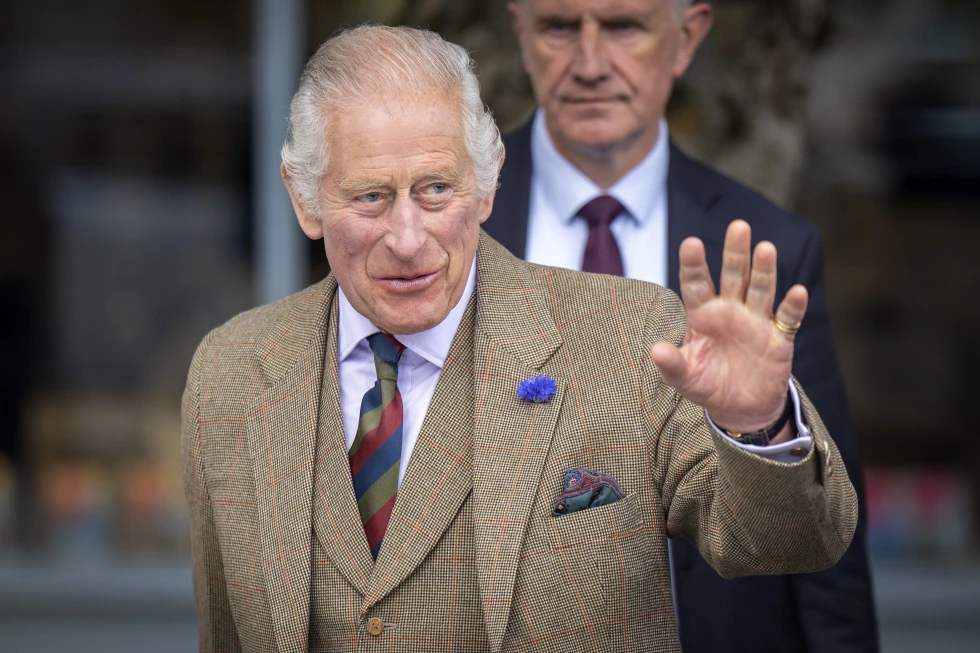In a statement released by Buckingham Palace, a visit to Kenya by King Charles, starting on Tuesday (Oct 31), will focus on some of the painful chapters shared between the UK and Kenya. This trip, however, won’t only limit discussions to historical struggles and Kenya’s fight for independence.
A focal point of the visit includes an incident involving a young Kenyan goatherder’s unfortunate loss of both arms to an unexploded bomb in 2015 when he was just thirteen. Lisoka Lesasuyan was crossing a field used for joint UK-Kenyan military exercises near Archer’s Post, located approximately three hours north of Nanyuki.
“I was grazing goats when I picked up the explosive, unaware of its nature. It detonated while I was innocently playing with it,” Lesasuyan related to AFP. Following the incident, British soldiers rushed the young boy to the hospital where he subsequently lost both arms below the elbow, part of his right eye, and suffered extensive burns, leading to hearing loss.
In a show of goodwill, albeit without admitting culpability, the British Ministry of Defence, in 2018, compensated Lesasuyan with 10 million shillings, approximately $100,000. However, there remains disagreement over whether British or Kenyan munitions were employed in the training exercise in question.
Lesasuyan’s case mirrors a series of similar, unfortunate incidents. The British Ministry of Defence, in 2002, awarded £4.5 million to 233 individuals who purportedly suffered injuries from unexploded ordnance. This development has heightened the longstanding dispute between both countries over the origin of the dangerous munitions.
For years, British forces have used central Kenya for training, drawing numerous controversies along the way, including allegations of sexual assault, murder, and civilian injuries. The British Army Training Unit in Kenya (BATUK), approximately 200 km north of Nairobi, serves as an economic boon for locals but has concurrently become a central figure for harsh criticism.
Amnesty International, in 2003, documented 650 claims of rape against British soldiers stationed in central Kenya between 1965 and 2001, decrying the continuous impunity. More recently, the tragic story of 21-year-old Agnes Wanjiru, whose body was discovered in a septic tank in Nanyuki in 2012, has renewed public outrage.
Wanjiru was reportedly seen last in the company of a British soldier. A British newspaper, The Sunday Times, reported in October 2021 that the soldier had confessed the crime to his fellow comrades, who then reported it to their superiors. However, no action was taken despite the allegation.
“Only God’s intervention can salvage us since the investigation has reached a standstill. We do not know if justice will ever be served,” bemoaned Wanjiru’s sister, Rose Wanjiku.
Despite the gruesome allegations, most locals like Wanjiku do not advocate for the shutting down of BATUK since it provides job opportunities. The British government suggests that BATUK has contributed £32 million to the local economy since 2016, becoming an invaluable source of income for local businesses, largely catering to the British troops.
While King Charles visit aims to disentangle the complex, shared history between the two nations, it is projected to omit a visit to Nanyuki, where British troops are stationed. On October 20, local demonstrators marched in the town, demanding further compensation from the British army. As controversial vestiges of the past come to light, it remains to be seen what impact the King’s visit will have on relations between Britain and Kenya.
Image Credit: Jane Barlow/Pool Photo via AP





